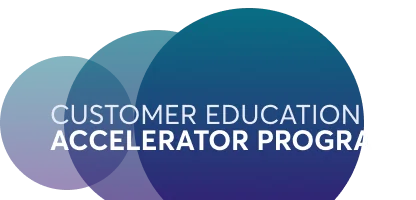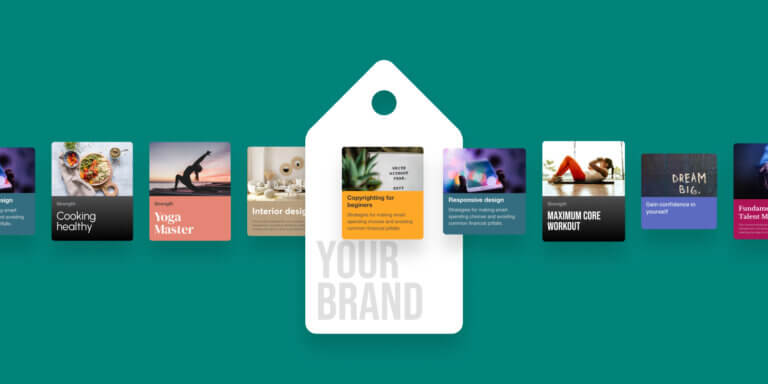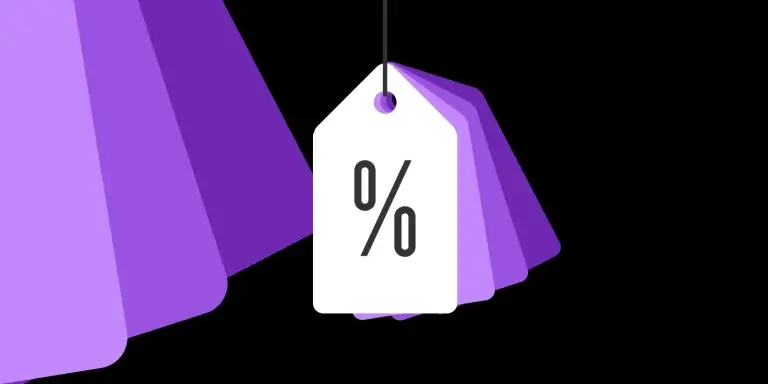Table of Contents
Thinking about starting an elearning business, but not sure where to begin? Well, one of the easiest and quickest ways is by finding high-quality white-label online courses to resell.
These courses help you save valuable time and money because they offer you ready-made educational resources that you can customize and sell under your brand name.
In this guide, we’ll show you how to find the best providers, choose the right courses, and effectively sell your courses.
What are white-label courses?
White-label courses are courses that were made by someone else, but you can purchase, rebrand, and resell them as your own.
They’re a great option if you want to reuse professionally-made elearning content and save significant time, money, and resources to create your course content from the ground up.
A few examples of white-label courses to resell include:
With white labeling, you don’t have to stress about getting that professional course design or consistent branding for your courses, because it’s already there.
Instead, you can spend more time on growing your community, developing value-based pricing, and marketing your courses.
Who can sell white-label courses?
Let’s clear up any confusion before we begin. In the world of white-label courses, there are generally two parties:
Sellers of white-label courses create and sell elearning content, which resellers like you can buy and offer to your audience. A few examples of potential white-label course sellers include:
By selling white-label courses, people can make a recurring income from licensing their content while also expanding their reach through resellers who introduce the content to new audiences.
White label vs PLR courses
Both white label and private label rights (PLR) courses are courses you can customize and resell as your own but with a couple of key differences.
PLR courses let you edit more of the actual content and may require you to credit the original creator.
Meanwhile, white-label courses offer fewer restrictions on how and where you can sell them. They can also be sold without attributing the original creator.
What are the benefits of white-label courses?
The benefits of reselling courses include increased customization, cost-effectiveness, and faster time to market.
Customization
White-label courses let you fully customize the course so it aligns with your brand. You get to add your own logo, colors, and messaging to make the content your own. This level of consistency will build trust and reinforce your brand at every touchpoint.
Cost-effectiveness
Buying a white-label course costs less than developing the content yourself. Instead of hiring web developers, instructional designers, and video editors to help build your course, you can download professional elearning content for free with select providers or at a reduced cost.
Faster time to market
Course creation is a slow process for many, with 36% of course creators spending one to three months developing a course. By using white-label courses, you can accelerate your time to market and make high-quality educational content immediately available to your audience.
Top providers of white-label courses
You have several white-label LMS providers and platforms to choose from when offering white-labeling capabilities and white-label courses to resell. Here’s a quick look at the top picks.
LearnWorlds – White label LMS
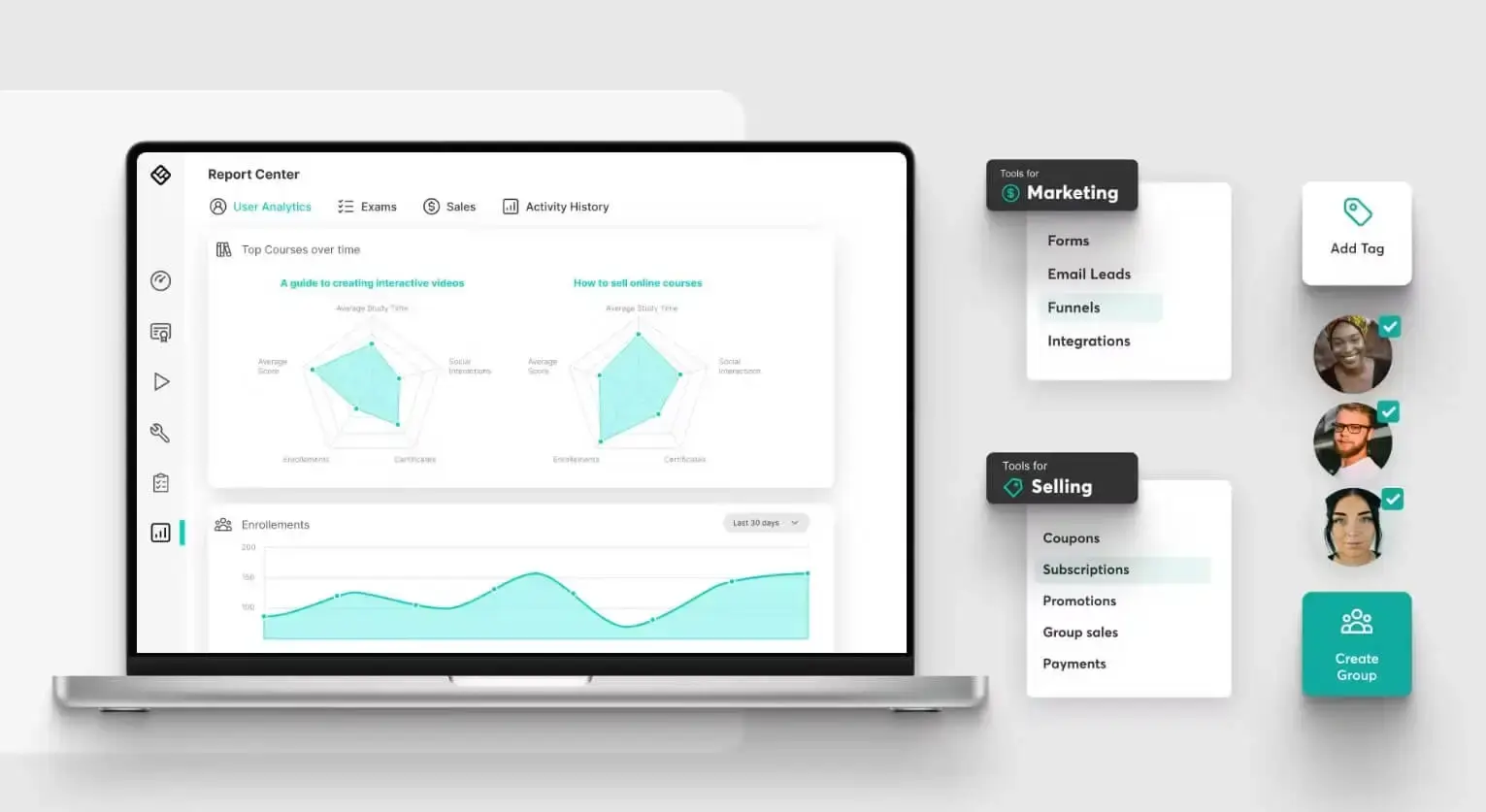
LearnWorlds is a white-label LMS platform that gives you the tools and templates you need to build a branded online academy and sell online courses. Through the LearnWorlds course builder, you can quickly create engaging elearning content, using white-label functionalities like custom domains, branded social logins, and branded email notifications.
The platform also offers 50+ fully customizable course templates to help you simplify course design, as well as strong customer assistance to support content resale.
Best for: Entrepreneurs, course creators, instructors, coaches, and businesses looking to monetize their expertise or train their customers, partners, and employees.
Pros
- AI Assistant for course creation
- Interactive videos
- Assessment Builder
- No-code Website Builder
- Ability to create a white-label course app
- Exceptional customer support
- Support for SCORM and HTML5 files
- Multiple integrations (connects with Zapier)
- A variety of payment gateways
Cons
- No free plan
- Steep learning curve
Pricing
LearnWorlds provides a 30-day free trial and the following paid plans:
*Pricing information retrieved from LearnWorlds in June 2025
LifterLMS – Instant courses
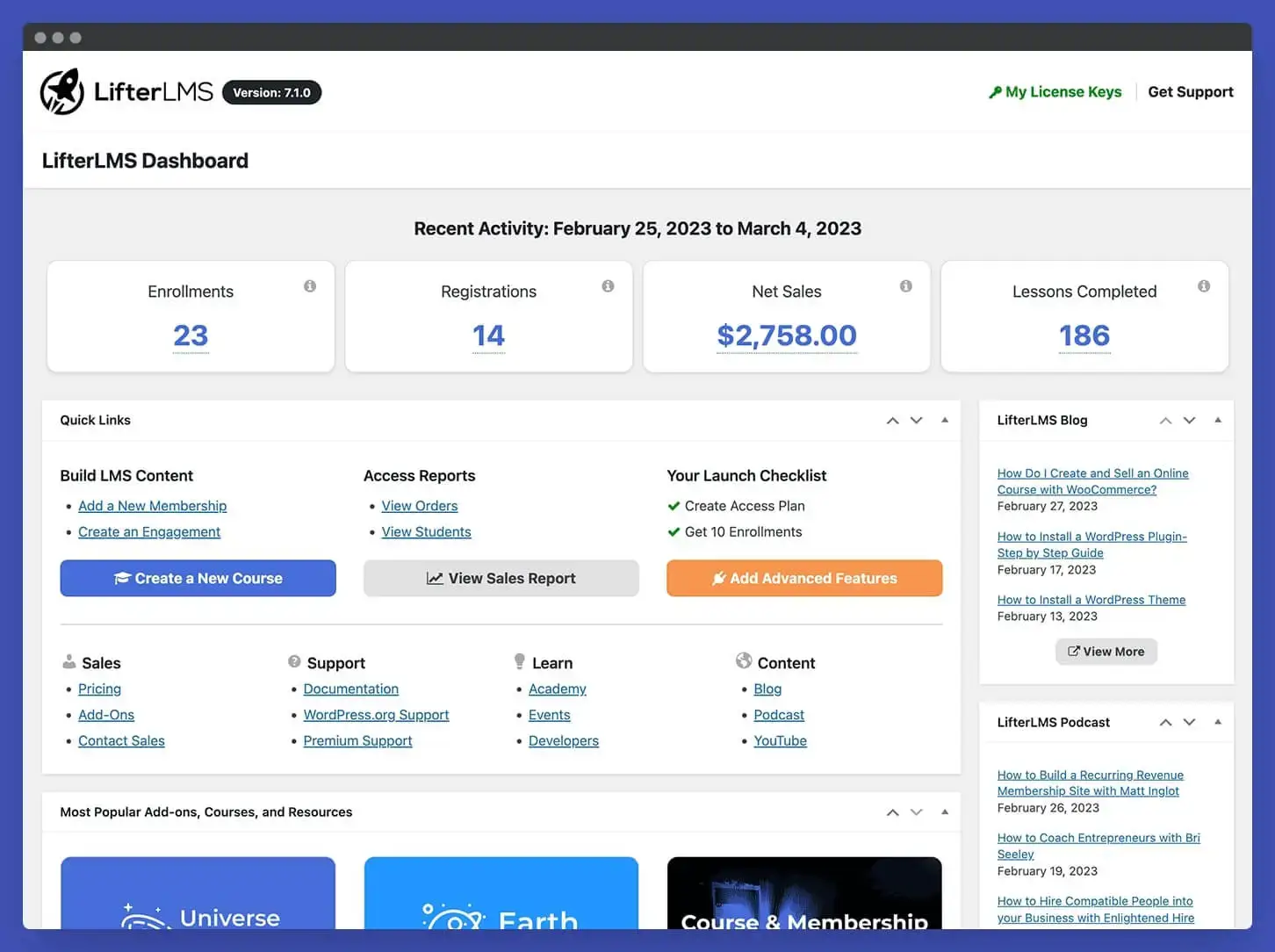
LifterLMS offers features like course builders, free white-label course bundles, and email marketing tools to help you create, launch, and scale online courses. As an LMS with free resell rights, the platform also allows you to sell its courses and keep the profits to yourself.
Currently, the LifterLMS white-label courses focus on health, wellness, and relationships. And with the platform’s useful customization and integration with WordPress, you can easily import these courses into your website to begin selling them.
Best for: Course creators, coaches, businesses, and schools who want a customizable WordPress-based LMS
Pros
- Drag-and-drop course builder
- Free core plug-in
- Content dripping
- Membership options
Cons
- Expensive add-ons
- SCORM-compliant
- Outdated front-end design
Pricing
LifterLMS offers a 30-day money-back guarantee and the following subscriptions:
*Pricing information retrieved from LifterLMS in June 2025
Cudoo – White label LMS
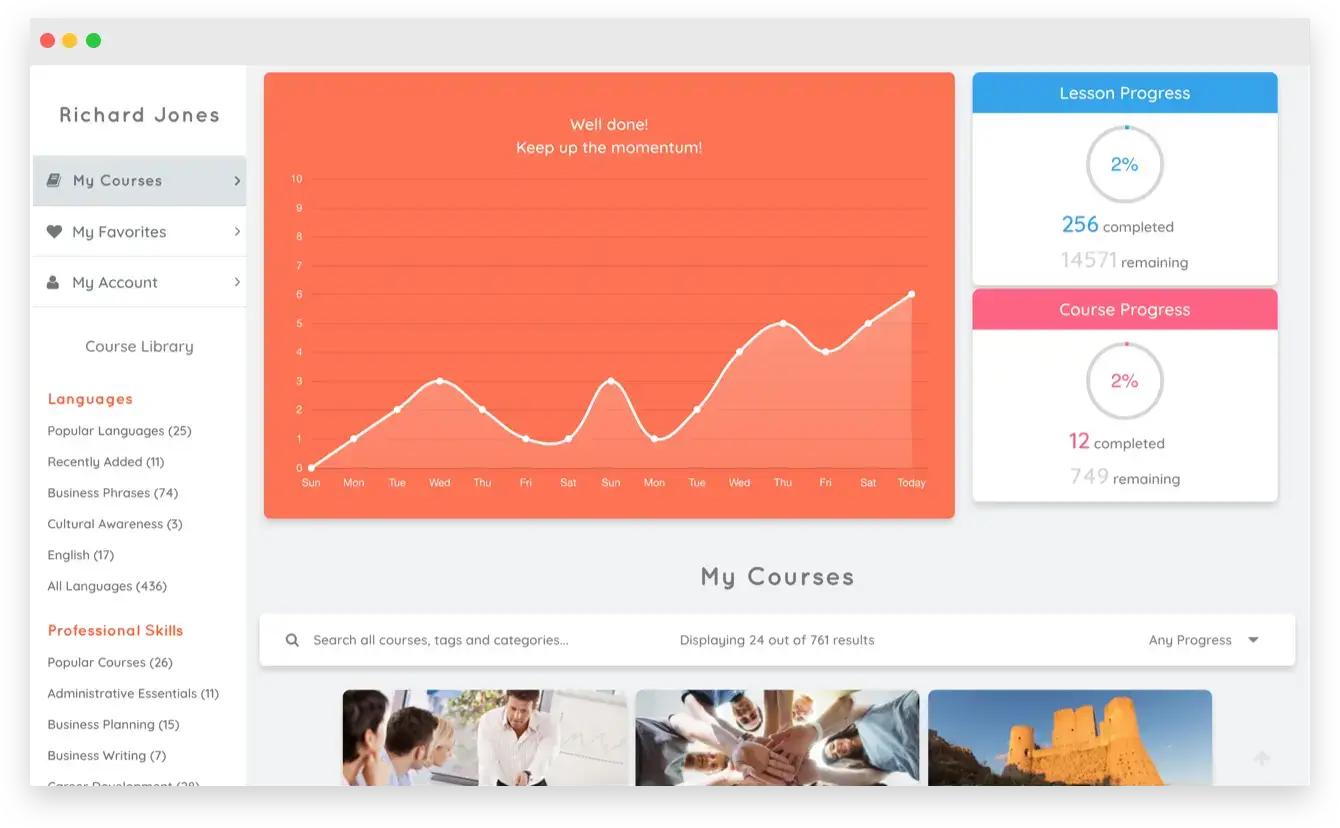
Cudoo offers over 800 courses in language and professional development, along with bundled programs that include lifetime access at discounted rates. The Cudoo white-label LMS lets you choose from over 800 online courses in language and professional development. Cudoo even offers professional development course bundles, each one providing lifetime access and delivered at a discount.
Extensive customization options like custom domains, log-in pages, and dashboards also let you resell Cudoo online courses as your own branded assets.
Best for: Organizations, training providers, online instructors, and businesses seeking an affordable LMS focused on language and professional development courses
Pros
- Self-paced and multi-format learning
- Provides certifications upon course completion
- Affordable pricing
- Lifetime access
Cons
- No free trial
- Limited advanced courses
Pricing
Cudoo offers a 14-day money-back guarantee. Individual courses start at $4.99, and bundle courses start at $29.99.
*Pricing information retrieved from Cudoo in June 2025
Problemio – PLR courses

Problemio offers over 250 private-label courses from popular Udemy instructor Alex Genadinik, covering business, marketing, technology, and programming. It also gives you lifetime PLR course access, lifetime updates, and business course resell rights.
Best for: Entrepreneurs, coaches, digital marketers, organizations, and educators who want to quickly launch or expand their business, marketing, and technology course offerings.
Pros
- Lifetime license updates
- Can keep 100% of your lifetime revenue
- Ongoing support for you and your students
- Created by an industry-recognized professional
Cons
- Expensive
- Can’t resell on Udemy
- Limited course format
- Must use Dropbox to access courses
Pricing
Problemio offers the following packages:
*Pricing information retrieved from Problemio in June 2025
Skillshub – Soft skills & compliance
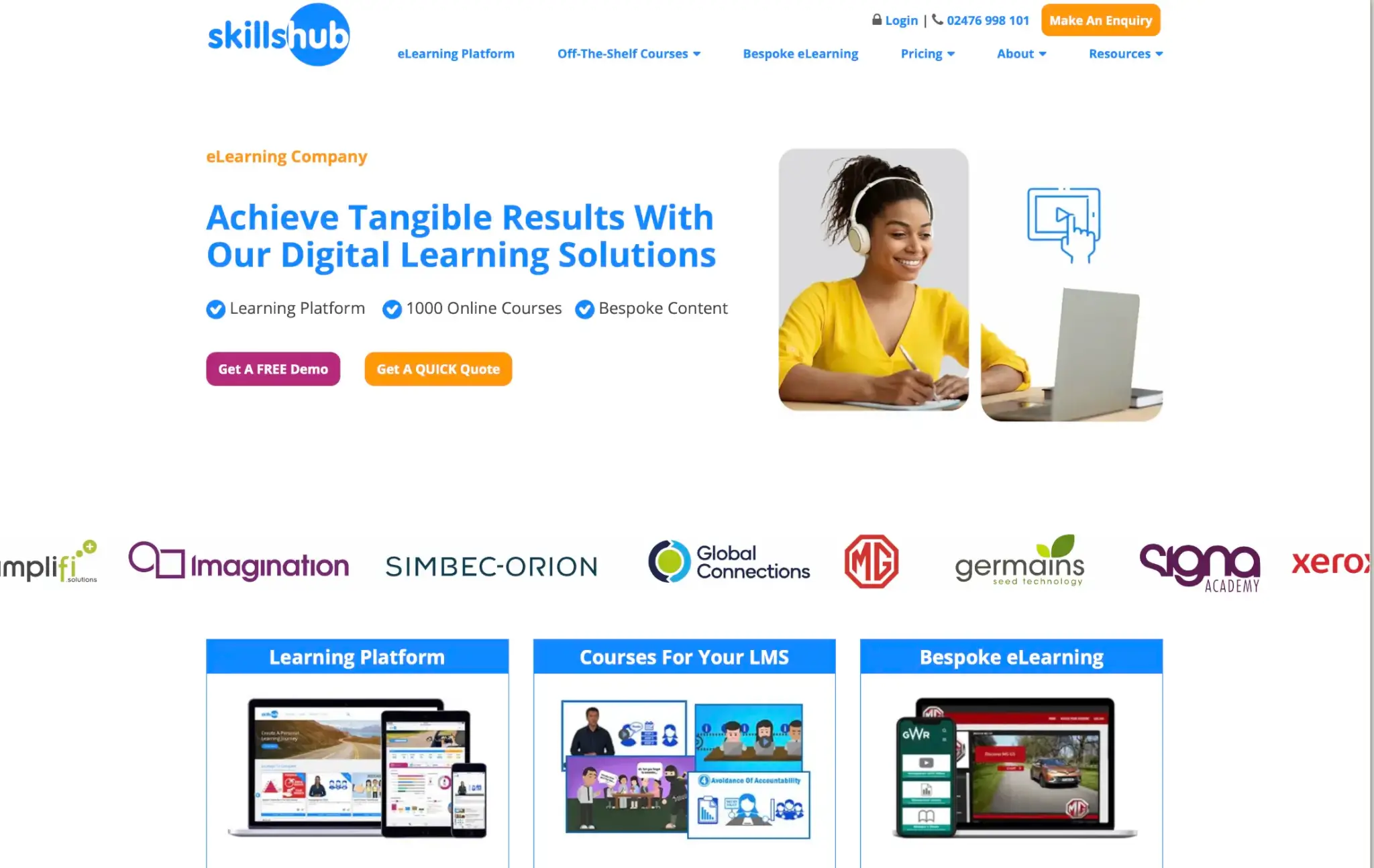
Skillshub is a UK-based learning platform offering both off-the-shelf and bespoke solutions.
Skillshub offers 1,000+ courses and supporting resources focused on compliance and workplace skills. The platform’s engaging soft skills courses feature motion graphics, animations, and presenter-led demos.
You can fully customize Skillshub’s platform and content so it reflects your organization’s identity.
Best for: Businesses seeking an easy-to-use LMS with skills training courses
Pros
- Easy-to-use interface
- Supports SCORM files
- Custom LMS
- Ongoing training and support
- Bespoke content
Cons
- Limited course topics
- Must request a quote for full pricing
Pricing
Contact the Skillshub sales team to receive a custom quote for the following offers:
*Pricing information retrieved from Skillshub in June 2025
PLR.me – Health & wellness courses
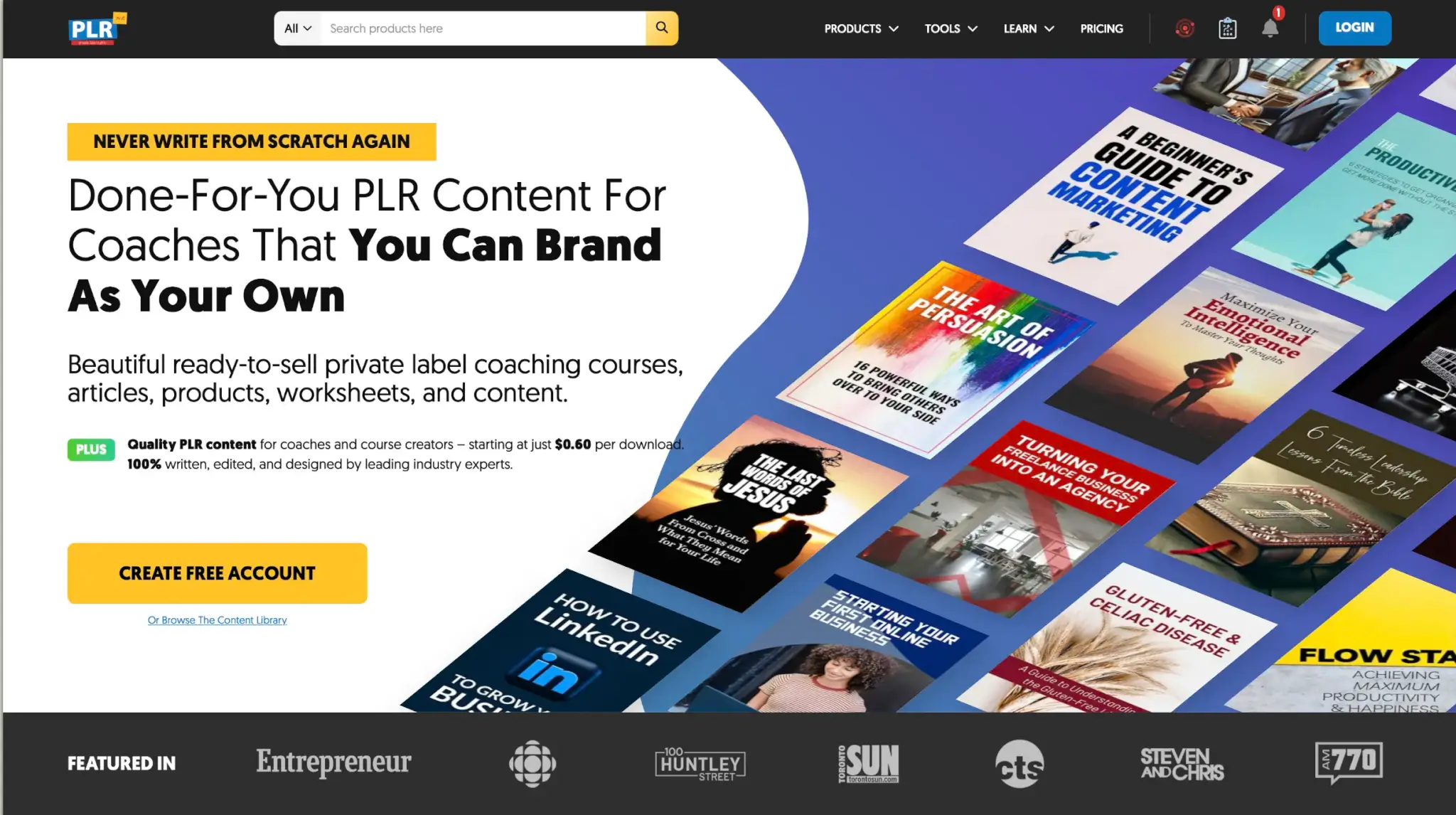
PLR.me lets you resell wellness and therapy courses as well as courses in the coaching and personal growth niches. Because of its downloadable articles, presentations, and worksheets, PLR.me makes it easy to build a branded product library.
On the platform, you’ll find various PLR.me health coaching courses and white-label mental wellness content designed to support students on their personal journeys.
PLR.me’s flexible licensing also lets you republish, rebrand, and resell content—no attribution required—helping you grow your wellness business with no hassle.
Best for: Coaches, therapists, content creators, and wellness pros who want to grow their business with a broad range of health and wellness resources
Pros
- AI marketing assistant
- Content marketing tools
- Flexible and affordable pricing
- Wide range of content
- Strong customer support
Cons
- Limited access to specific products
Pricing
PLR.me offers the following credit-based pricing options:
*Pricing information retrieved from PLR.me in June 2025
Comparing white-label course providers
Below, you’ll find a white-label course comparison that breaks down top providers on key criteria. Read on to find the best white-label course provider for your elearning business.
Although selecting a provider for your white-label course may take time, you should carefully review these options before investing.
Content variety and specialization
Top choice for content variety: PLR.me
PLR.me leads in content variety, with the platform boasting over 18,000 ready-to-sell coaching resources, including courses, articles, products, and worksheets.
Another excellent contender is Skillshub, which features hundreds of infographics, cheat sheets, and coaching blueprints.
Skillshub goes the extra mile by providing training and development content.
Top choice for content specialization: PLR.me
PLR.me also excels in specialization. Its wide range of resources covers the coaching, mental health, and personal growth spaces in depth.
Still, Problemio is worth mentioning, with its refined focus on video course content for the business, marketing, and technology niches.
Customization capabilities
Top choice for customization capabilities: LearnWorlds
As a fully customizable online course platform, LearnWorlds easily takes the crown here.
You can get a custom domain, take advantage of 50+ customizable templates, and add your branding to everything from site themes to course layouts, making it perfect for white-label online course resellers.
LifterLMS is a great runner-up for this category, as it lets you personalize registration forms, add custom fields, and display your own branding across emails and student dashboards.
Pricing structures and support
Top choice for pricing structures: Cudoo
Cudoo is the most affordable option, giving you instant, lifetime access to courses for as little as $1.99. You also get discounted bundle courses and a 14-day money-back guarantee.
PLR.me also stands out for its pricing, as it follows a credit-based model and grants access to brandable coaching resources for just $0.60 per credit.
Top choice for support: LearnWorlds
LearnWorld’s reliable 24/7 online support and new customer onboarding make it the go-to provider for this category. It also has a dedicated help center, with how-to guides and tutorials.
Next in line would be PLR.me as it offers responsive chat, email, and phone support as well as a playbook course on how to use the platform effectively.
How to choose the right white-label courses
Choosing the right white-label courses to resell is easier when you have a plan in place. Here’s a quick guide to help you decide how you’d like to approach this.
Assess your audience’s needs
Understanding your target audience and their needs always comes first. Doing this should help you choose a course that your customers will want to join.
If you want, conduct a survey to identify their goals, motivation, challenges, skill level, and learning preferences. Once done, you can use the information you collected to help you select your course.
You might also want to ask yourself, “What’s the best white-label content for my niche?” This will help you decide whether the course materials match the expectations of your chosen market.
For example, courses in the digital marketing niche should often include templates and checklists that help students apply their skills to real-world projects.
Marketer Alex Cattoni’s “STORM” program does this.

Evaluate course quality and relevance
Research on what drives people to buy online courses shows that both course quality and relevance play a key role.
So, when choosing your white-label courses, it’s worth evaluating them based on these two criteria. Check verified courses, course providers, and reviews from course instructors to help you with this.
Check for course updates
When choosing white-label course providers, you also need to look into how often they update their courses. That way, you ensure your content will remain fresh, relevant, and engaging for your learners at all times.
Your course provider should update their courses at least every four months. To find out how often they do so, check their course product page, their blog, or their social media profiles.
Understand licensing terms
Understanding and following licensing terms will help you stay safe, as long as you don’t violate any copyright or intellectual property law.
To save you from legal trouble, we’ve got a few white-label licensing tips to share:
If you do all these things, you are good to go.
Need more advice? Check out what other experts are saying about white label courses and their experience (good or bad) with white-label content providers.
Wendy Makinson, HR Manager at Joloda Hydraroll
Tamsin Gable, Ambassador at Comfax
Shantanu Pandey, Founder & CEO at Tenet
Steps to start reselling white-label courses
Now that you understand the value of white-label content and how to choose the right provider, it’s time to take action.
Follow these key steps to customize and resell online courses. By the end, you’ll be prepared to start your elearning business, even with no course creation skills.
Selecting and licensing courses
When selecting white-label courses, choose courses that meet your audience’s needs and offer diverse resources, strong customization, and ongoing support.
When licensing your course, make sure the provider offers flexible licensing terms that allow resell rights and branding.
Review these terms carefully and adhere to them to avoid future legal issues.
Customizing content and branding
After settling on a course, customize and make it your own. Start by editing lessons, quizzes, and media to tailor the learning experience to your audience.
Then, focus on consistent branding. Add your logo, colors, and tone not only to course content but also to landing pages, email communications, and certificates.
Platforms like LearnWorlds make branding white-label courses easy, with customizable templates, branded certificates, and custom domains that help your courses look and feel authentically yours.
See for yourself and try a 30-day free trial today.
Marketing and selling your courses
If you’re wondering how to sell white-label courses successfully, start by identifying your ideal student profile and defining your unique value proposition.
Then, use different channels like SEO, email marketing, and social media to build brand awareness and drive traffic to your website.
Offer limited-time discounts, bundle deals, and certificates to boost conversions. Also, ensure a frictionless checkout process for higher sales.
Fernando Valencia at Unblinded Mastery
With these 8 steps and our handy checklist, you can start reselling courses without second-guessing your every move. While you go through these, don’t forget to collect feedback from your customers and update your courses regularly, implementing that feedback.
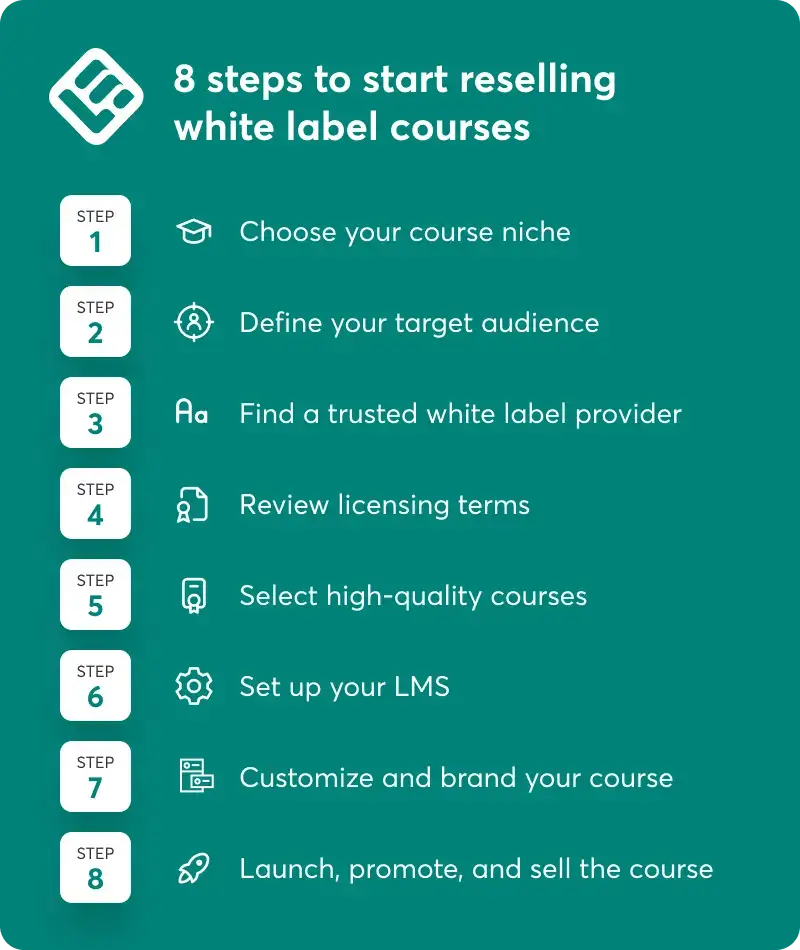
Ready to invest in a white-label LMS?
White-label courses offer a fast and affordable way to launch your courses without starting from scratch. These come with extensive branding and customization capabilities, which in turn can help you make the course your own.
If you’re ready to sell white-label courses, give LearnWorlds a try. Our platform is packed with powerful branding features, it’s 100% white labeled and offers top-notch AI course creation tools and 24/7 support.
This is the LMS that will help you grow your elearning business in no time. Get started with LearnWorlds’ 30-day free trial and see how easy selling online courses can be.

Zeniya Cooley
Zeniya Cooley is an SEO blog writer and journalist. She has written for EdTech companies, SaaS companies, higher education institutions, and publishers like Lexia Learning, eLearning Industry, Central Carolina Technical College, Simon & Schuster, and more. Visit her website at www.zeniyacooley.com and connect with her via LinkedIn.
FAQ
Everything you have ever wondered, but were too afraid to ask...

